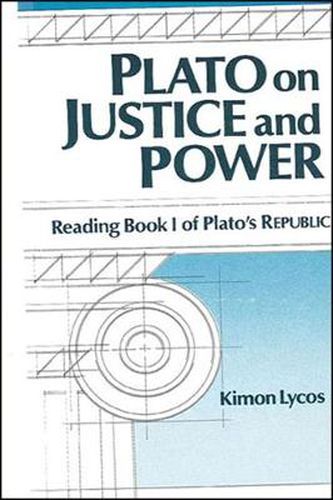Readings Newsletter
Become a Readings Member to make your shopping experience even easier.
Sign in or sign up for free!
You’re not far away from qualifying for FREE standard shipping within Australia
You’ve qualified for FREE standard shipping within Australia
The cart is loading…






Most commentaries on the Republic rush through Book I with embarrassment because the arguments of the participants, including Socrates, are specious. Beginning with Book II, the arguments are brilliant, so why did Plato write Book I? Lycos shows that the function of Book I is to attack the view that justice is external to the soul-external to the power humans have to render things good-and is merely instrumental to a good society. The dramatic situation in Book I presents justice as internal, requiring not laws, but discrimination and virtue. After this introduction, the rest of the Republic serves to sketch out what virtue is and how to practice discrimination. Plato on Justice and Power ends with some illuminating contrasts between this sense of virtue and that characteristic of our modern liberal politics which takes an external view of justice similar to the Athenians view at the time of Plato.
$9.00 standard shipping within Australia
FREE standard shipping within Australia for orders over $100.00
Express & International shipping calculated at checkout
Most commentaries on the Republic rush through Book I with embarrassment because the arguments of the participants, including Socrates, are specious. Beginning with Book II, the arguments are brilliant, so why did Plato write Book I? Lycos shows that the function of Book I is to attack the view that justice is external to the soul-external to the power humans have to render things good-and is merely instrumental to a good society. The dramatic situation in Book I presents justice as internal, requiring not laws, but discrimination and virtue. After this introduction, the rest of the Republic serves to sketch out what virtue is and how to practice discrimination. Plato on Justice and Power ends with some illuminating contrasts between this sense of virtue and that characteristic of our modern liberal politics which takes an external view of justice similar to the Athenians view at the time of Plato.